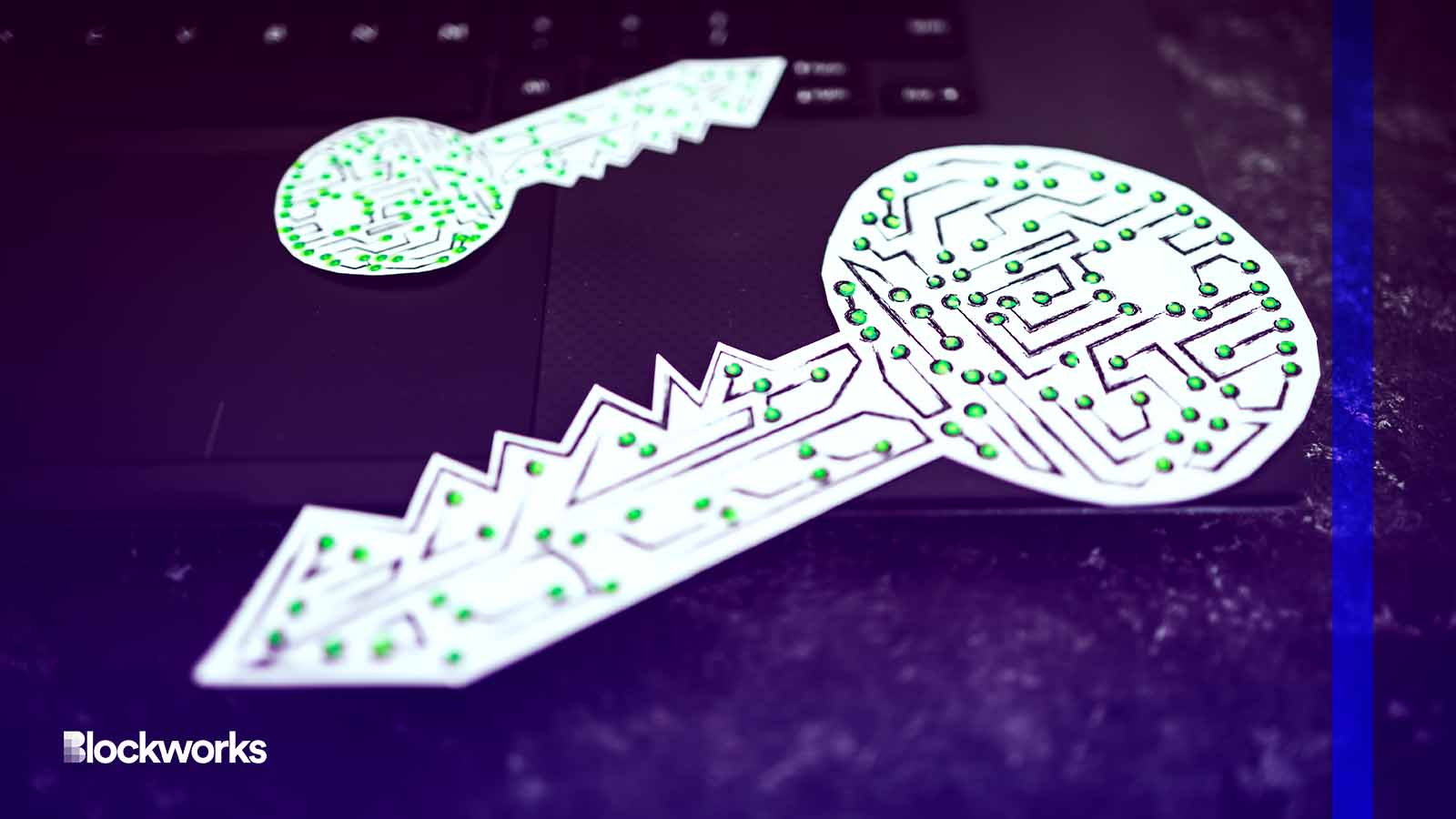Elusiv debuts private token swap functionality for Solana
Elusiv successfully closed a $3.5 million seed round in November 2022

faithie/Shutterstock modified by Blockworks
Privacy protocol Elusiv is launching a private token swap tool for Solana. The platform intends to aid users who wish to trade their assets without revealing personal information about themselves.
The core infrastructure for the tool has been under development for over a year, and is now available through a web app and supports transfers to other crypto wallets in solana (SOL), USD Coin (USDC), tether (USDT), bonk (BONK) and samoyedcoin (SAMO).
Expansion to other ecosystems outside of Solana is being considered, according to Elusiv co-founder Julian Deschler.
To use it, people have to connect their wallet and top up their “private balance” to their desired amount. Then, when it’s time to make a transaction, the private swap functionality encrypts the user’s public key while also generating a temporary key. That temporary key sends the transaction, thereby obscuring the user’s trading habits.
“This enables users to swap assets with complete privacy, as token pairs and amounts can never link to a user’s wallet address. This increases users’ security, hides trading strategies and protects those making frequent swaps or exchanging large quantities,” Elusiv shared in a statement.
Elusiv also pointed out that making trades on decentralized exchanges (DEXs) are not the end all be all for privacy, as data is scraped from them and published on block explorers.
Deschler said this tool is crucial to make DeFi fair for everyone, including regular users and seasoned traders.
“Private token swaps secure one of the most fundamental actions in all of DeFi and push the entire Web3 space forward to deliver on core values of self-sovereignty and data ownership,” Deschler said in a statement.
The idea of obscuring crypto transactions isn’t at all new. Crypto mixers such as Tornado Cash have been around for years. CoinJoin was released in 2013, and it performed a similar function to mixers but was specific to Bitcoin.
However, Deschler told Blockworks that Elusiv doesn’t mix user funds, adding that Elusiv is more akin to privacy protocols Aztec and Railgun.
“We utilize a combination of cryptographic schemes, most notably zk-SNARKs to bring privacy guarantees to users,” Deschler said. “Mixers, on the other hand, present notable differences in their privacy assurances, programmability, and foundational structure.”
Mixers have also run into legal trouble. Tornado Cash developer Alexey Pertsev was arrested last summer after authorities suspected him of facilitating money laundering. Before Pertsev’s arrest, the US Treasury sanctioned Tornado Cash, making it impossible for Americans to interact with it.
Deschler said Elusiv has “not been met with any legal hurdles,” adding that his team is engaged with the European Crypto Initiative’s efforts to develop fair regulation.
Get the news in your inbox. Explore Blockworks newsletters:
- The Breakdown: Decoding crypto and the markets. Daily.
- 0xResearch: Alpha in your inbox. Think like an analyst.






